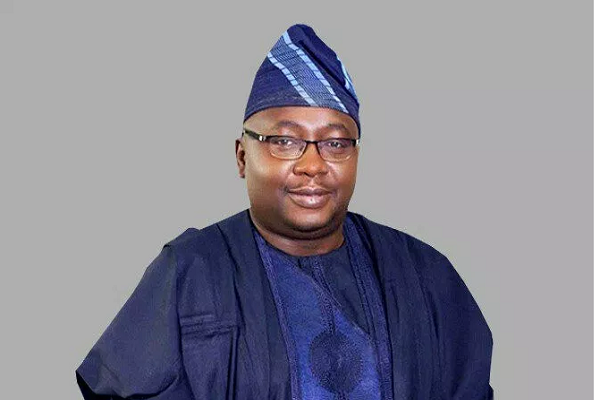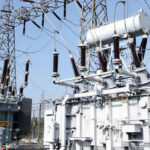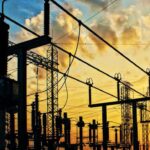Since his appointment as Nigeria’s Minister of Power, Adebayo Adelabu, has not shied away from proposing policies to rejig the sector.
With the minister not having a background in energy prior to his appointment, his decades of experience in the finance sector his policies have focused on resuscitating investments in the power sector, thus Nigerians feel they are exploitative and aimed at making them to pay more the power that remains epileptic in many parts of the country.
The controversial policies and his remarks, at some point generated calls for his sack.
Weekend Trust in this report chronicles the many controversies of the Minister of Power since his assumption of office on August 20, 2023.
- Power outage: Abuja, Niger ice-blocks to the rescue in Kano
- Why we want to unbundle railway sector — Transport minister
First public appearance
While Nigerians were expecting the minister to focus on the immediate task before him, Adelabu’s first public outing after his appointment was a visit to his hometown in Oyo State to a rousing welcome by his supporters, having contested in the 2023 governorship elections.
While there, the minister used the occasion to engage in some media tour where he made several promises that energy experts believed were political avowals that do not reflect reality.
The minister promised to fix the electricity situation in the country within six months and bring the country’s power generation to 20,000 megawatts (MW) from the current 4,500MW.
He also claimed the country had the generation capacity of 17,000 MW even though it is estimated to be between 11,000MW and 13,000MW.
Similarly, he promised to present his holistic plan to address the sector in three weeks but the “zero draft” of the policy was revealed a year after his appointment.
Increase in electricity tariff
Under his tenure, the Nigerian Electricity Regulatory Commission, in April announced an increase in tariff for Band A customers who were expected to enjoy over 20 hours of electricity.
Comment on wasteful Nigerians keeping freezers, ACs on always
In an effort to douse criticism on the tariff increase from N66 to N225 per kilowatt, the minister berated Nigerians for what he called lack of management in usage of electricity.
Adelabu made the comment during a press briefing, saying, “A lot of people will come back from work and they want to have dinner or they want to play with their colleagues down the road, they switch on the AC for the room to be cooling before they come back.
“Some people will be going to work in the morning and their freezers are left on for days, when all their items are frozen. This is because they are not paying enough.
“We have all been overseas before, we know how conscious the power consumers are to consumption of electricity; this will enable us to manage consumption”.
The backlash of the comment was huge and forced him to tender an apology.
Adelabu, who was a guest on the Channels Television Politics Today, said “Anything we have said that is considered offensive; we are sorry about that. I never intended to insult the sensibilities of Nigerians in anyway.
“It was an innocent advice with regards to energy consumption management which we believe will go a long way in reducing people’s energy bills. And that advice was directed at those that we believe that because of the recent increase in tariff will start enjoying 20 hours of power per day.”
Covert plans to increase electricity tariff for all bands
Despite the public outcry on the rise in electricity tariff for Band A customers, the minister hinted of it plans to extend a similar measure to every Nigerian in the country to reduce the bills the government pay as subsidy in the sector.
He disclosed that the Band A increase was to be a pilot stage before a few years moratorium to implement the policy on other bands.
“This tariff review is in conformity with our policy thrust of maintaining a subsidised pricing regime in the short-run or the short-term with a transition plan to achieve a full cost reflective tariff for over a period of, let us say, three years.
“It is because of government’s sensitivity to the pains of our people that will not make us migrate fully into a cost-reflective tariff or to remove 100 per cent subsidy in the power sector like it was done in the oil and gas sector.
“We are not ready to aggravate the sufferings any longer which is why we said it must be a journey, rather than a destination and the journey starts from now on, that we should do a gradual migration from the subsidy regime to a full cost-reflective regime and we must start with some customers.
“This is more like a pilot (scheme) for us at the Ministry of Power and our agencies. It is like a proof of concept that those that have the infrastructure sufficient enough to deliver stable power, those enjoying 20 hours of light should be the ones to get tariff added,” he said.
‘40% of Nigerians enjoying 20-hour power supply daily’
Despite the federal government acknowledging that 92 million Nigerians are not connected to electricity, the minister claimed that the number of Nigerians that currently have access to over 20 hours of electricity had hit 40 per cent, implying that over 80 million Nigerians now enjoy top level power supply.
He credited the ‘achievement’ to ‘certain revolutionary measures’ which he said were taken to ensure that Nigerians enjoy more stable and regular electricity supply, noting that it was with the support of President Bola Tinubu.
A statement in Abuja by the minister’s spokesman, Bolaji Tunji, said the minister spoke while reviewing the activities of the ministry in the last one year on the eve of the October 1 independence celebration.
“The minister also revealed that more than 40 per cent of Nigeria’s electrified consumers are currently enjoying over 20 hours of regular and stable electricity across the nation”, he said.
He said this was due to the radical and bold steps that were taken.
Threat of blackout if Nigerians do not accept tariff hike
The minister, while appearing before the Senate Committee on Power at an investigative hearing over the recent electricity tariff hike warned that there would be total blackout in the country if the proposed electricity tariff hike was not implemented.
This followed the rejection of the new tariff regime by the Senate committee, led by Senator Enyinnaya Abaribe.
Adelabu said, “The entire sector will be grounded if we don’t increase the tariff. With what we have now in the next three months, the entire country will be in darkness if we don’t increase tariffs.
“The increment will catapult us to the next level. We are also Nigerians; we are also feeling the impact.”
Sector needs $10 billion yearly
He said the sum of $10 billion is needed yearly for the next ten years to revive the nation’s power sector and nip in the bud the challenges bedeviling it.
“For this sector to be revived, the government needs to spend nothing less than 10 billion dollars annually in the next 10 years.
“This is because of the infrastructure requirement for the stability of the sector. But the government cannot afford that. So, we must make this sector attractive to investors and to lenders.
“So, for us to attract investors and investment, we must make the sector attractive, and the only way it can be made attractive is that there must be commercial pricing”, he said.
‘FG plans 6000 megawatts to improve power supply’
In March this year, the minister promised to increase power generation in the country from 4,000 to 6,000 megawatts within three to six months.
During a meeting with the heads of power agencies and other stakeholders in the industry, he said, “4,000 megawatts is not acceptable and we have plans to increase the megawatts to a minimum of 6,000 to 6,500 within the next three to six months.
“What we are looking at it to have an agreement to ramp up to a minimum of 6000 megawatts within the next three to six months.
“I know that the highest we ever generated was 5,700 megawatts about three years ago, that was specifically in Nov. 2021.
“And these 5700 megawatts were also distributed. If we could achieve 5,700 at that time, I believe we still have infrastructure to generate between 6,000 and 6,500,” he said.
Adelabu said he had visited a number of generation companies and confirmed that they had the installed capacity to generate the 6,000 megawatts.
However, eight months after, the country’s power generation is still hovering around 4,500MW to 5,000MW while the power situation has worsened with grid collapses and vandalism that have thrown parts of northern Nigeria into darkness for weeks.

 Join Daily Trust WhatsApp Community For Quick Access To News and Happenings Around You.
Join Daily Trust WhatsApp Community For Quick Access To News and Happenings Around You.


